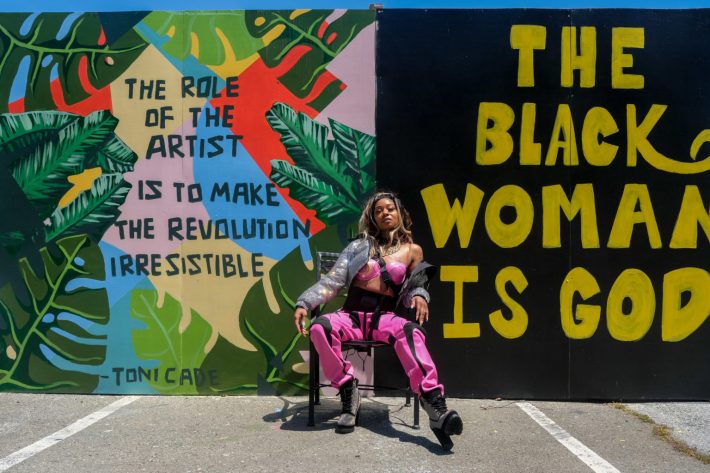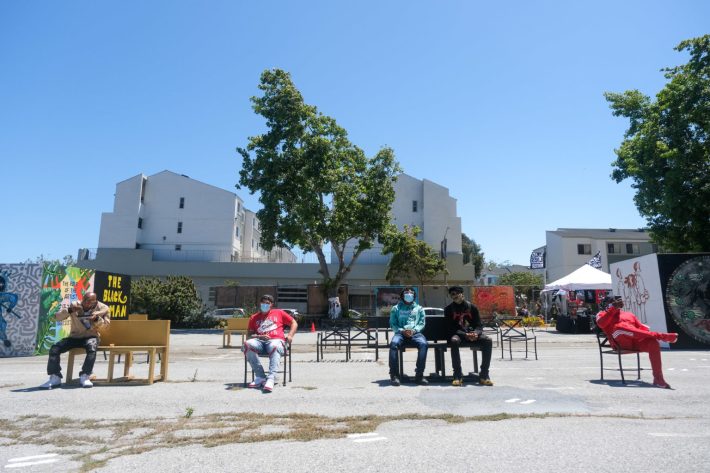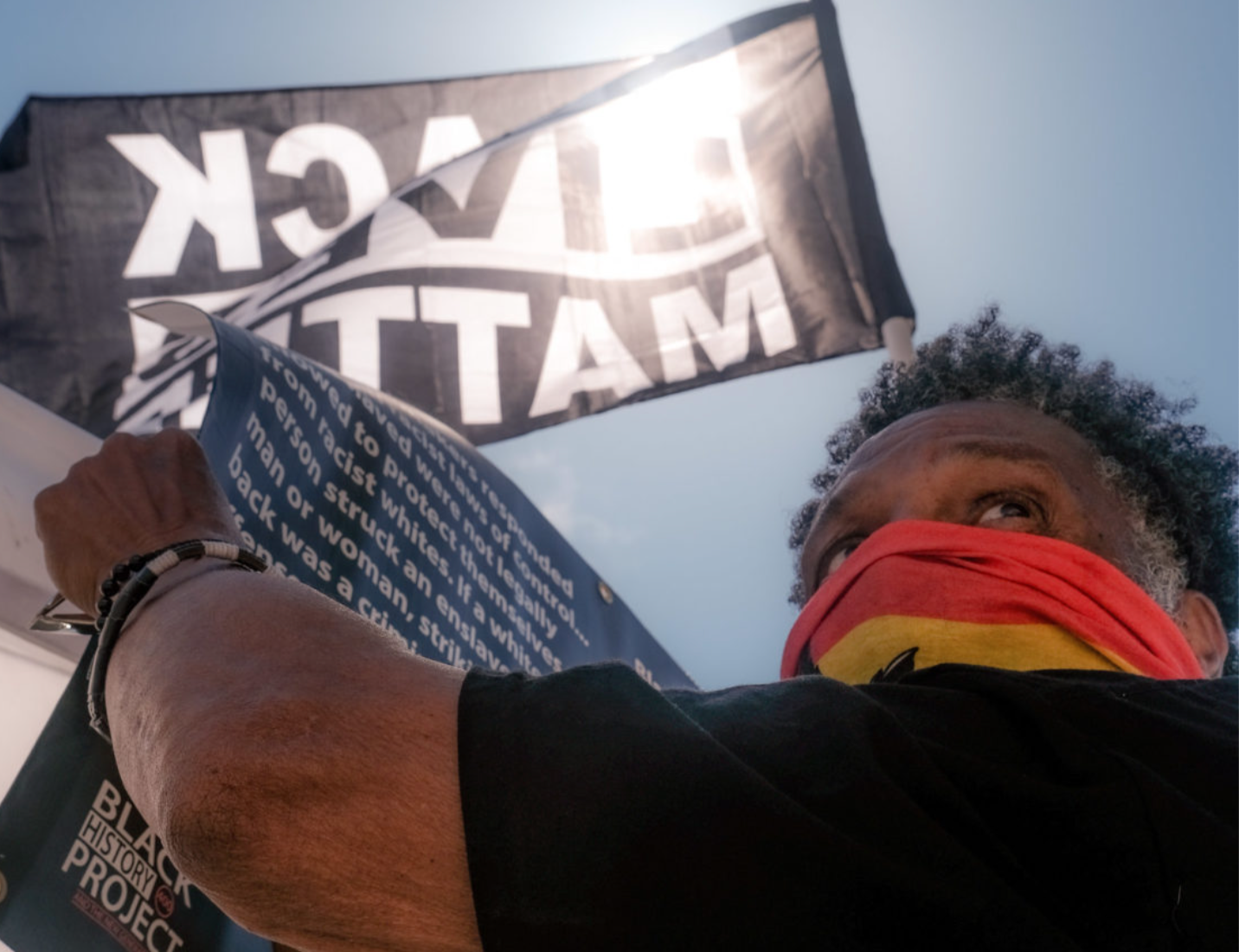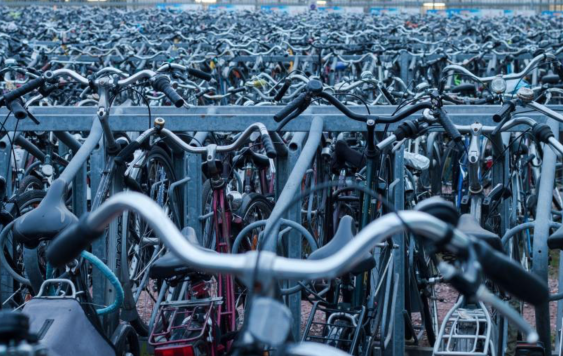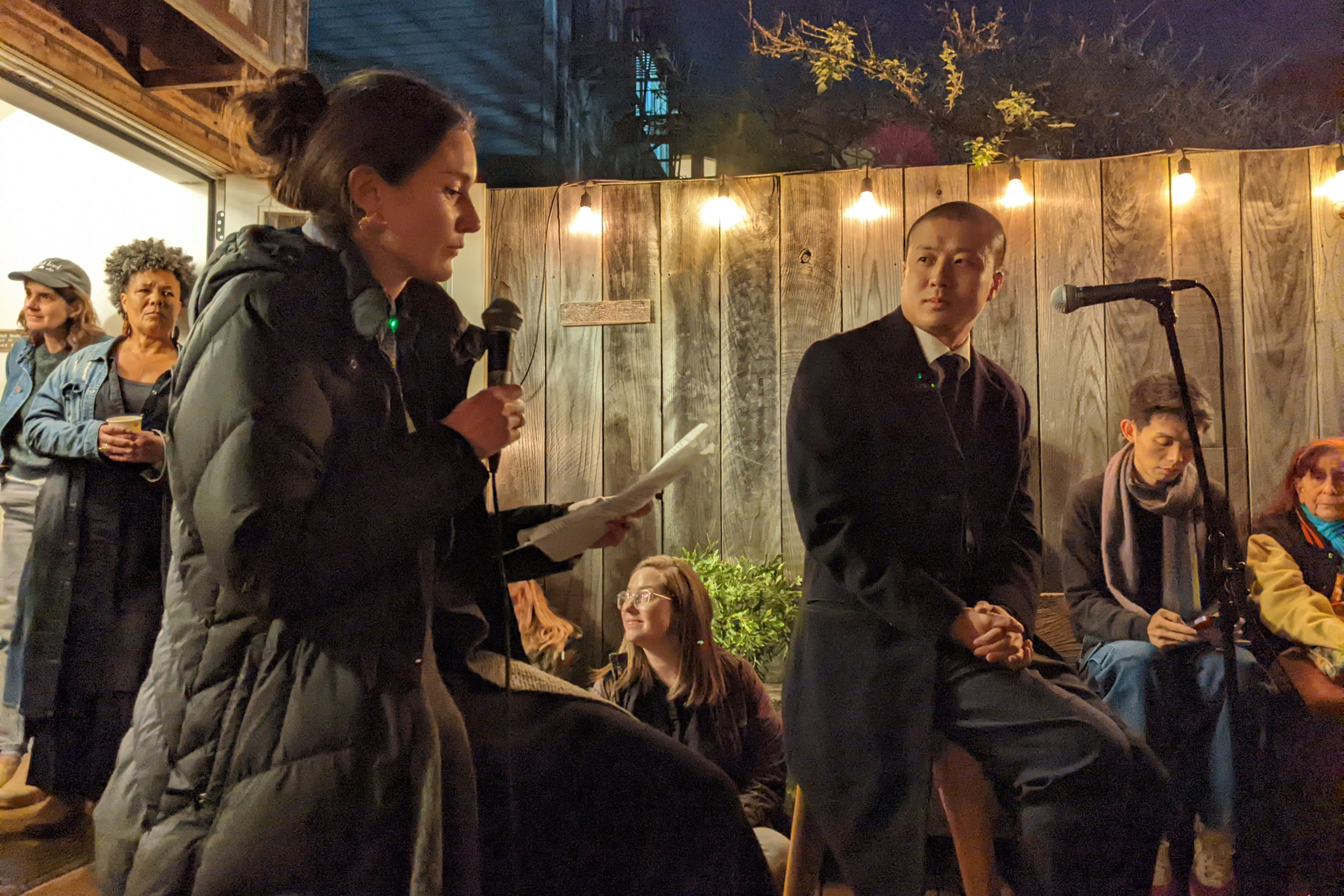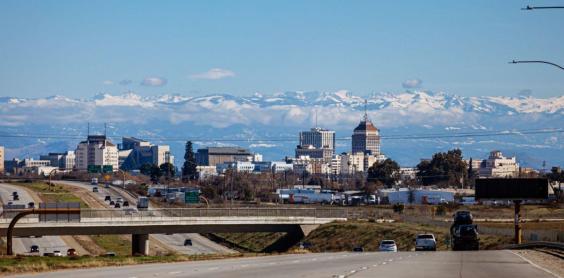This article first appeared in Here/Say Media. It is reprinted with permission.
hen George Floyd was murdered a year ago, Bay Area community leaders, artists and activists came together at the African American Art & Culture Complex (AAACC) to paint the words “Black Lives Matter” on Fulton Street across three blocks between Webster and Octavia. On the one-year anniversary of George Floyd’s death this week, the group reunited to restore the street mural, listen to live music and speakers, browse the outdoor gallery and connect with fellow community members.
Here/Say asked attendees to reflect on whether the Black Lives Matter movement has created lasting change.
When George Floyd was murdered a year ago, Bay Area community leaders, artists and activists came together at the African American Art & Culture Complex (AAACC) to paint the words “Black Lives Matter” on Fulton Street across three blocks between Webster and Octavia. On the one-year anniversary of George Floyd’s death this week, the group reunited to restore the street mural, listen to live music and speakers, browse the outdoor gallery and connect with fellow community members.
Here/Say asked attendees to reflect on whether the Black Lives Matter movement has created lasting change.
Phelicia Jones, Founder of Wealth And Disparities In The Black Community
“George Floyd’s murder sparked a national outcry which is important, but San Francisco’s citizens should also look at what is happening in their own backyards with this movement as it relates to Black and Brown people dying at the hands of police. Mario Woods, Luis Gongora Pat, Alex Nieto, Jessica Wiliams. You could just go on naming people. And as for the officers, they just go back to work. They get their pensions. They get their vacations. It’s the Black community that suffers. This pain exists for us, whereas life goes on for the officers.”
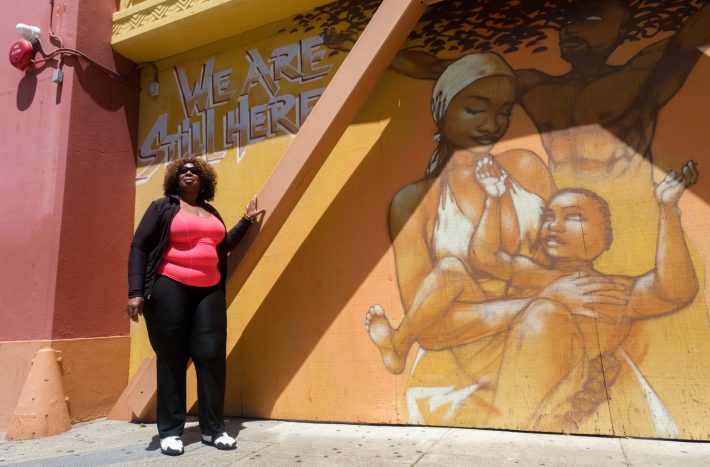
Andre Jones, Mural Director
“When I think of George Floyd, I think of Black families that have lost fathers, the incarceration system that continually locks up Black and Brown people. When we lose our fathers, we lose the backbones of our community. A year later, some things have changed, but not enough. That’s why we are restoring this mural as a reminder that more work needs to be done.”
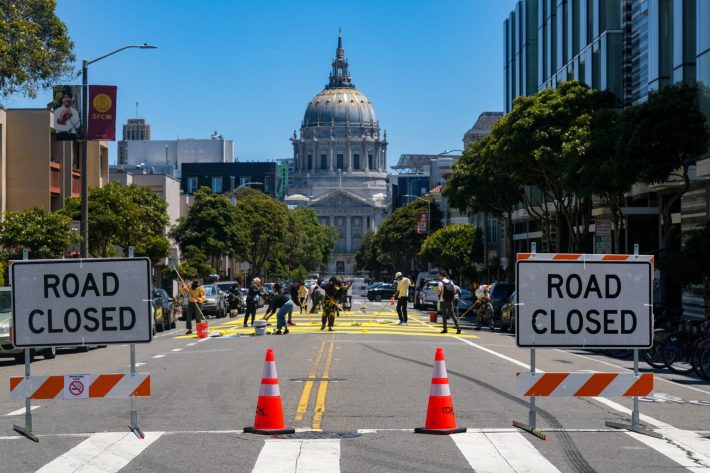
Stevante Clark, Activist
“There’s a difference between justice and accountability. [The verdict in the Derek Chauvin trial] was a little bit of accountability. We must be sure to keep that in our mind, otherwise, we’ll accept anything and call it justice. ”
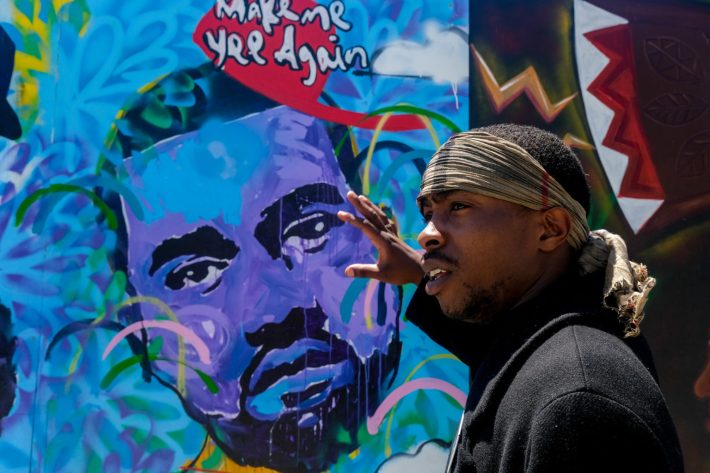
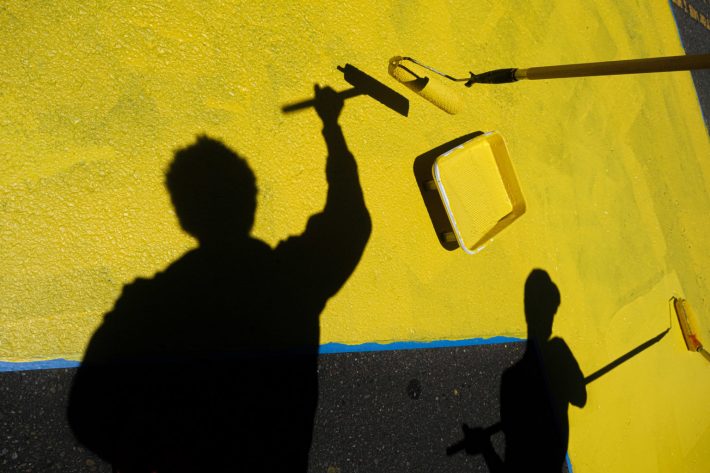
Reverend Arnold Townsend
“I am not necessarily happy with the level of progress. The first step is to come to grips with how bad it really is. In our city, because of the liberal, progressive, even radical reputation we have, we don’t want to admit how bad things really are. When you live in a city where the average Black person makes around 30k for a year, but the White person makes over 100k a year, that is an unbelievable disparity. I’m not willing to say, ‘Let’s wait, things will get better eventually.’ We have to stop the wheels while they are in motion. The police are bearing the brunt of this, which they should. But to be honest, some of the racial disparities that we find within the police department are the same that we can find in just about every department in the city, and what’s their contribution to changing the outcome for Black life?”
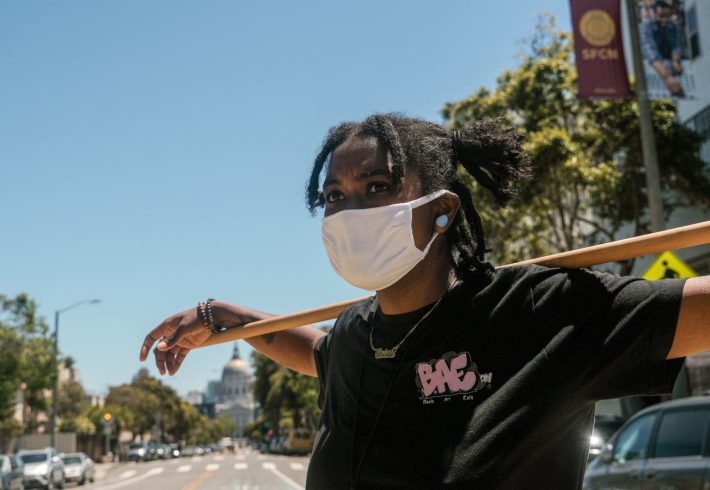
Melonie Green, Co-Executive Director of the AAACC
“I am thankful that we have the opportunity to display this type of activism while we are trying to figure out our way out of this pandemic, but when it comes to real change the keyword is consistency. We have to figure out how to share knowledge, build trust and have better relationships with our civic leaders.“
